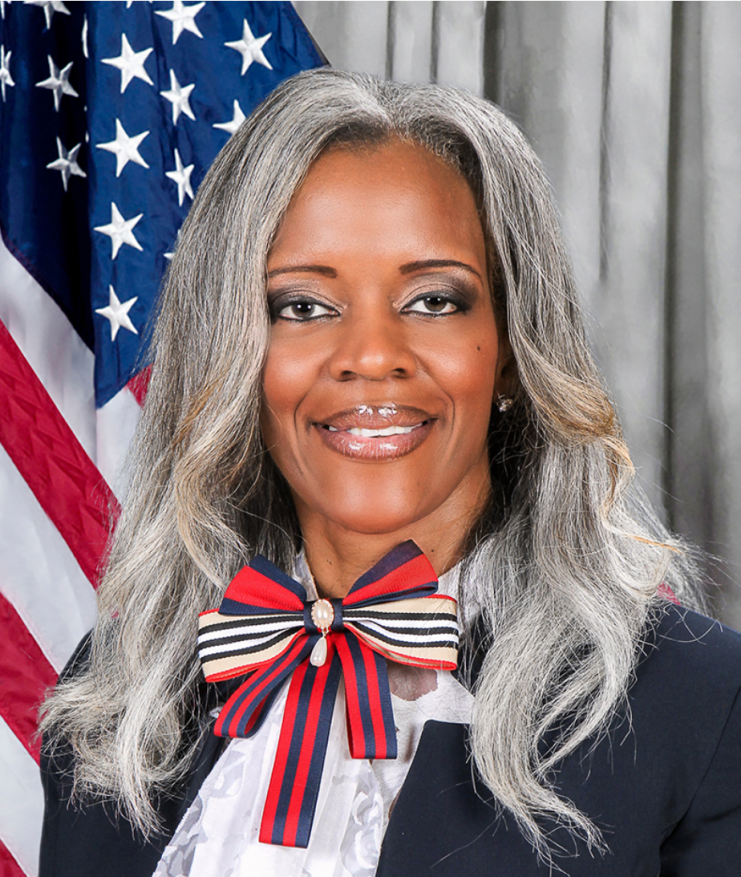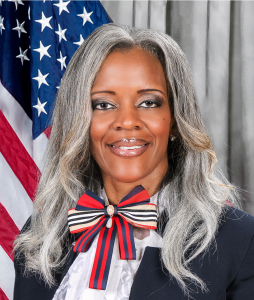
The Mirror Project: Waking Up To Your Implicit Biases as Leaders
We all have biases, yet we are not all able to accept that fact. Nor are we often able to receive or believe that there are behaviors or systems that we as leaders allow that impede student achievement because of our own biases, especially our implicit ones. I strongly believe, as school leaders, we are not intentionally trying to keep our students from being successful as these harmful occurrences are often done implicitly.
About five years ago, I was combing through some school data on our Advanced Placement (AP) program. At that time, we were offering four different AP courses. This was a huge feat for such a school with an enrollment of less than 300 students. Nonetheless, we were doing it. While looking through the data, unlike other schools that statistically struggle with having a disproportionate number of black and brown males represented in rigorous academic programs, our proportion of African American and Latinx males was high. So high that we had received a ‘shout out’ in a district-wide year-end metric.
Unfortunately, however, while our data showed a high number of minority males represented, there was a disproportionate representation of African American females represented. Not only was it inconsistent, it was gravely nonexistent. With a close examination of all four AP class rosters, only one of the four rosters had one AA female enrolled. This glaring fact was so alarming that I launched a full data analysis on our AA females as a targeted group. I created a Behavior, Attendance and Grade report on them as a whole. What I discovered was as a group, our AA females had the lowest discipline infractions, the highest attendance percentage and the highest GPAs across all four grade levels yet they were not represented in AP courses. How?
Instead of putting blame on the teachers, the parents, counselors or students, I took responsibility. As a school leader, I thought back to my own high school experience where school leaders turned their backs and allowed systems and educators to play a role in perpetuating and even exacerbating inequities that created barriers to hinder my success as a student. I remembered the harm it caused my minoritized peers who did not have the fortitude nor advocacy to gain access to advanced courses and without this encouragement found themselves left out, sidelined, and marginalized from certain courses by those who allowed their biases to exclude them.
This discovery led to two actions. First, working with my Instructional Leadership Team (ILT) we created an Academic Pathways system that eliminated teacher discretion as the only criteria to be enrolled in AP courses, drastically dismantling educators’ bias and decreasing the harm being caused to minoritized students. Secondly, it fueled my desire to apply for a role as a Chicago Public School district Professional Learning Community, PLC, facilitator, with The Chicago Public Education Fund, to help other school leaders critique their own implicit biases, synthesize knowledge about themselves and their leadership and its impact on their school community, create and evaluate their own Racial Autobiography and apply insights and strategies to improve their leadership and reduce the impact of their biases on the school community.
I had to stop and look in the mirror and if I wanted to be impactful, I felt it was my responsibility to assist my peers to also stop and look in the mirror. Something I will now call, The Mirror Project. A term borrowed from my learning received as I read The Four Pivots by Shawn A. Ginwright.
In his book, Professor Ginwright says the first pivot we must make is from “Lens to Mirror.” He goes on to describe ‘mirror work’ or self-reflection as a commitment to a process and a way of seeing the world that is an interconnected whole, rather than individual cogs in a machine. He recognizes that being self-reflective is tough work because it requires that we all take responsibility for creating the future we want. In doing so, we embark upon work that is hard, a process and not a quick fix because it requires us to be vulnerable, transparent and honest about what we see when we look in the mirror:
- Who am I?
- How did I get like this?
- What are my lived experiences that cause me to act or think a particular way about people?
As educators, we have to make time to process our own feelings and become aware of the way our own identities and experiences shape the perspectives we hold. Which is why I now have every participant of my PLC: E for Equity, Fixing What’s Broken to Become a More Equitable Leader complete a Racial Autobiography. The goal is to transform school leaders into practitioners who create equity by:
- Committing to a personal journey of self-awareness and self-work
- Identifying personal goals and priorities for being an equity-driven educator
- Engaging in systemic awareness work
- Looking at data with an equity lens
- Engaging students academically, socially, and emotionally
- Implementing active change making, and
- Normalize talking about race
I was prompted to start using the practice of writing a Racial Autobiography with my PLC participants after reading an article in 2021 published in the ASCD magazine by Mark Anthony Gooden called, Why Every Principal Should Write a Racial Autobiography. He stated that a racial autobiography is an empowering tool of antiracist leadership. In Five Practices for Equity-Focused School Leadership (ASCD, 2021), Mark Anthony Gooden and his coauthors provide preliminary steps to completing a racial autobiography. They encourage leaders to identify—and jot down—multiple times/points/moments in their lives when race was foregrounded. These could be significant moments, powerful lessons, or formative experiences involving race, especially those occurring in a school, family, or professional setting. The idea is to simply travel backward in this exercise: When writing their racial autobiographies, leaders will learn to make connections between early understandings of race and current beliefs and practices.
In doing this deep self-reflection dive in community with other PLC Participants in Chicago Public Schools, I noticed an awakening of my own biases. I also noticed that participants too, based on responses given to end-of-session questions, had their own awakening. Their responses were, “wow, I did not realize I was doing this” or “I did not realize how much my lived experiences really do impact how I lead and what I believe.”
Through my work with Lead by Learning in partnership with The Fund, I am grateful for the multitude of tools and activities we engaged in so that we can spend time supporting our PLC participants to be reflective. I use tools such as the practice of Think Alone, Supportive Challenge, Ladder of Inference, Vision Shopping and Radical Dreaming to deepen my leadership and their learning. After each PLC session, my participants engage in reflection and self-assessment, which guides me as a leader to determine how I can enhance and improve the PLC experience.
After four years leading this PLC alongside colleagues I have noticed that when you create a brave space for participants to be vulnerable and transparent enough to be self-reflective they will experience a transformative awareness that leads to real and adaptive change. Within our PLC we create a ‘brave space’ and not a safe space. This brave space makes room for leaders to really look at themselves while making room for other participants to say, “until I start with who is staring back at me in the mirror, I cannot fully help those who I see through the lens!” Their own awareness challenges them to look at the practices they can control and determine how they will correct them to improve themselves as leaders and their school communities.
The impact this work has had on me as an individual and as a leader in our district is that I better understand my why. It has made me a better listener, trusted mentor and thought partner. Additionally, I no longer use equity as just a buzzword and I have learned that doing equity work is not a sprint, it’s a journey. I am very intentional about making sure all the practices, policies or procedures we implement at the Air Force Academy in Chicago Public Schools are done as equitable as possible. We now ask the right questions, how is what we are doing impacting student achievement?
As school leaders we must take full responsibility for leading ourselves and others to uncover and/or discover our implicit biases. Our lived experiences can impact how we think and act. We have to gain a better understanding of what equity is and how it impacts our schools through professional learning, our application and action planning, hiring, and every other action we take as leaders.
If we have awareness, we can transform our thinking and our actions to remove barriers which prevent all our students from achieving. Let’s do the Mirror Work and engage in self-work, self-examination, and self-awareness utilizing Liberatory Thinking to gain practical strategies for creating equity in classrooms, our schools and other educational settings.
 Dr. CPT Yashika Nicole Tippett-Eggleston, a native of St. Louis, MO, has been instrumental in starting two of the six public military academies within Chicago Public Schools (CPS). As the only African American female veteran of CPS military academies, Yashika currently serves as the founding Principal of the Air Force Academy High School (AFAHS) in Chicago, IL (2009); the only public Air Force High School in the nation. As the Instructional Leader of AFAHS, CPT Tippett is credited with leading the AFAHS to obtaining a Level 1 status and introducing and sustaining a new innovation in education for Chicago by housing the very first state of the art flight simulator lab in all of Chicago Public Schools. She is also a four-time recipient of the Chicago Public Schools’ Distinguished Principal’s Merit Award. As a lifelong learner, Dr. CPT has earned several degrees, certificates and her doctorate. She is an ordained minister who loves sharing the gospel, traveling, event planning, decorating, cooking, shopping, and spending time with her children and family.
Dr. CPT Yashika Nicole Tippett-Eggleston, a native of St. Louis, MO, has been instrumental in starting two of the six public military academies within Chicago Public Schools (CPS). As the only African American female veteran of CPS military academies, Yashika currently serves as the founding Principal of the Air Force Academy High School (AFAHS) in Chicago, IL (2009); the only public Air Force High School in the nation. As the Instructional Leader of AFAHS, CPT Tippett is credited with leading the AFAHS to obtaining a Level 1 status and introducing and sustaining a new innovation in education for Chicago by housing the very first state of the art flight simulator lab in all of Chicago Public Schools. She is also a four-time recipient of the Chicago Public Schools’ Distinguished Principal’s Merit Award. As a lifelong learner, Dr. CPT has earned several degrees, certificates and her doctorate. She is an ordained minister who loves sharing the gospel, traveling, event planning, decorating, cooking, shopping, and spending time with her children and family.
Interested in working with Lead by Learning to support professional learning for your site leaders and educators? Connect with a member of our team to learn more about our partnerships.
